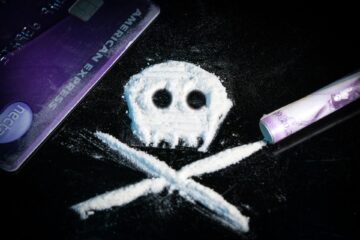Understanding how to know if someone does drugs is crucial for family members, friends, and colleagues who may be concerned about a loved one’s well-being. Substance use can affect physical health, mental health, relationships, and everyday functioning. Early recognition of drug use allows for timely intervention and access to professional help, improving the chances of successful recovery.
Physical Signs of Drug Use
Drug use often produces noticeable changes in the body. Some physical indicators include:
- Sudden weight changes: Rapid weight loss or gain may occur due to altered appetite.
- Bloodshot or glassy eyes: Some substances affect pupil size or eye appearance.
- Unusual body odors or hygiene neglect: Personal care may decline during periods of heavy use.
- Frequent nosebleeds or runny nose: Common with substances that are snorted.
- Track marks or bruises: Signs of injection drug use.
- Sleep pattern disturbances: Irregular sleep or extreme fatigue can indicate stimulant or depressant use.
Recognizing these physical changes can provide an early warning that someone may be struggling with substance use.
Behavioral Changes
Drug use often affects behavior and daily functioning. Look for the following signs:
- Mood swings and irritability: Sudden shifts in emotion or aggression.
- Withdrawal from social activities: Avoiding family, friends, or previously enjoyed hobbies.
- Decline in work or school performance: Missing deadlines, absenteeism, or declining grades.
- Secretive behavior: Lying, hiding possessions, or being evasive about whereabouts.
- Financial problems: Unexplained need for money or theft.
Behavioral shifts can be one of the clearest indicators that someone may be using drugs.
Emotional and Psychological Indicators
Substance use can also manifest through changes in mental and emotional well-being, such as:
- Anxiety or paranoia: Heightened fear or suspicion without reason.
- Depression or apathy: Loss of interest in life or ongoing sadness.
- Confusion or poor decision-making: Difficulty concentrating or remembering tasks.
- Sudden changes in personality: Acting out of character or exhibiting unusual behaviors.
These emotional and psychological signs, especially when combined with physical and behavioral indicators, can strongly suggest drug use.
Social and Environmental Clues
Drug use often impacts social interactions and the environment around the person:
- Changes in friends or social circles: Associating with new peers who may influence drug use.
- Possession of drug paraphernalia: Items such as pipes, rolling papers, syringes, or small baggies.
- Neglecting responsibilities: Ignoring household tasks or failing to meet obligations.
- Frequent unexplained absences: Regular disappearances or secretive outings.
Observing these social and environmental factors can help identify patterns consistent with drug use.
Types of Drugs and Their Effects
Different substances produce varying signs, which can help in identifying potential drug use:
- Stimulants (e.g., cocaine, methamphetamine): Increased energy, reduced appetite, insomnia, paranoia.
- Depressants (e.g., alcohol, benzodiazepines): Slurred speech, drowsiness, poor coordination, mood swings.
- Opioids (e.g., heroin, prescription painkillers): Constricted pupils, drowsiness, nausea, track marks.
- Hallucinogens (e.g., LSD, PCP): Distorted perception, hallucinations, sudden mood changes.
- Cannabis: Bloodshot eyes, impaired coordination, short-term memory issues, increased appetite.
Understanding these substance-specific effects can guide early recognition and intervention.
Steps to Take if You Suspect Drug Use
If you notice signs indicating someone may be using drugs, consider taking these steps:
- Approach with care and empathy: Avoid judgment or confrontation. Choose a calm and private setting for discussion.
- Gather information: Note observed signs, behaviors, and any changes in daily life.
- Encourage professional help: Suggest resources such as counseling, medical evaluation, or addiction treatment programs.
- Set boundaries: Protect your own well-being while supporting the person.
- Provide ongoing support: Offer emotional support without enabling substance use.
Early intervention can significantly increase the likelihood of successful recovery and reduce the risks associated with drug use.
Professional Help and Resources
Recognizing the signs of drug use is just the first step. Professional help provides medical and psychological support to address addiction safely and effectively. Treatment programs may include:
- Medical detoxification: Supervised removal of drugs from the system to manage withdrawal.
- Individual counseling: Personalized therapy addressing underlying causes of substance use.
- Group therapy: Peer support for sharing experiences and developing coping skills.
- Family therapy: Strengthening relationships and support systems.
- Aftercare programs: Long-term strategies to prevent relapse and maintain recovery.
Professional guidance ensures that individuals struggling with addiction receive comprehensive care tailored to their unique needs.
Preventing Relapse and Supporting Recovery
Recovery from drug use is an ongoing process that requires vigilance and support. Strategies to prevent relapse include:
- Identifying triggers: Recognize environments, people, or emotions that may prompt drug use.
- Building coping skills: Use therapy techniques to manage stress, cravings, and emotional challenges.
- Maintaining healthy routines: Sleep, nutrition, and exercise support mental and physical wellness.
- Engaging in support groups: Continued connection with peers reinforces accountability and encouragement.
Long-term recovery is achievable with consistent support, education, and professional guidance.
Final Thoughts
Learning how to know if someone does drugs is essential for protecting loved ones and ensuring timely intervention. By observing physical, behavioral, emotional, and social signs, individuals can recognize potential substance use early and take appropriate steps. Professional support, therapy, and treatment programs provide the tools necessary for recovery and long-term well-being.Touchstone Recovery offers expert guidance and comprehensive programs for those struggling with substance use. By seeking help early, individuals can reclaim control of their lives and embark on a path toward lasting health and recovery.












